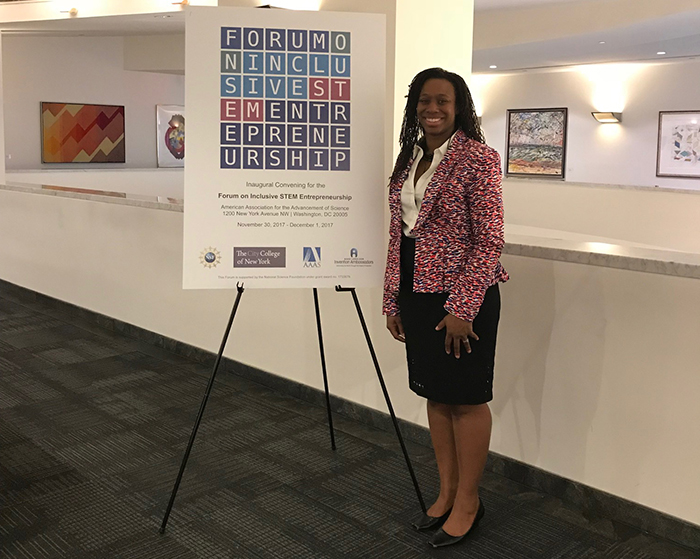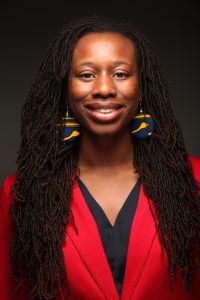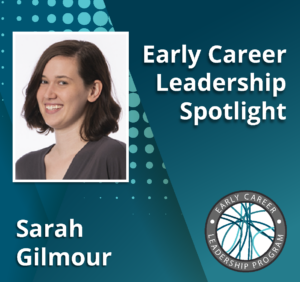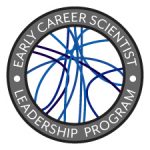 NSF Program Officer Chinonye Nnakwe Whitley combines her skills in business, academia and entrepreneurship to empower underrepresented scientists. In addition to her work on the NSF EPSCoR (Established Program to Stimulate Competitive Research) team, she leads innovation training workshops for early career scientists.
NSF Program Officer Chinonye Nnakwe Whitley combines her skills in business, academia and entrepreneurship to empower underrepresented scientists. In addition to her work on the NSF EPSCoR (Established Program to Stimulate Competitive Research) team, she leads innovation training workshops for early career scientists.
In the Decoding Life series, we talk to geneticists with diverse career paths, tracing the many directions possible after research training. This series is brought to you by the GSA Early Career Scientist Career Development Subcommittee.
Any opinions, findings, and conclusions or recommendations expressed in this article are those of the author(s) and do not necessarily reflect the views of the National Science Foundation.
Chinonye Nnakwe Whitley empowers scientists from underrepresented groups and works as a Program Officer for the NSF Established Program to Stimulate Competitive Research (EPSCoR), where she oversees funding opportunities for researchers and educators. Chinonye also developed skillsets in entrepreneurship, a design thinking mindset, and served as an entrepreneurship ecosystem resource to scientists and engineers during her time as a Science and Technology Policy fellow for the American Association for the Advancement of Science (AAAS), which she used to guide her career decisions.
How have your life experiences influenced your career?
I didn’t come into science at an early age; in fact, I started my undergraduate degree at the University of Illinois Urbana-Champaign as a general major. I was selected as a McNair scholar my sophomore year, which introduced me to basic science research in physiology and an incredible community of researchers who, like me, were also from underrepresented groups. I hadn’t known that this group of scholars existed! I realized a passion for basic science research and I pursued a PhD at the University of Chicago on DNA repair in mammalian cell systems and DNA damage signaling in baker’s yeast.
As an African American woman, I’ve faced a number of micro- and macro- aggressions throughout my career; however, my support network encouraged me to succeed. Mid-way through my PhD, my interests changed from running a lab to exploring the business side of science and science policy. After working at a management consulting firm that focused on biotech and pharma companies, I became the Director of Graduate Diversity Initiatives, within the Provost’s Office at the University of Chicago, where I focused on attracting students from URM backgrounds to graduate education. My work included traveling the country to demystify the graduate application process for students and their mentors, and to recruit applicants. I worked across all PhD programs to build infrastructure, ran a summer research program and created a multi-institutional network that offered mentor training to faculty as well as grantsmanship skills to post-doctoral scholars. This experience led me to realize that the ability to positively impact scientists and engineers through my work is what speaks to my heart. Now, as a Program Officer for the EPSCoR program at the NSF, I am a public servant and work to build better research infrastructure and graduate training.
What are your responsibilities as Program Officer for EPSCoR?
EPSCoR’s goal is to enhance research competitiveness of targeted jurisdictions (states, territories, commonwealth) by strengthening STEM capacity and capability. As part of the team, I am a responsible steward of EPSCoR investments that develop the scientific workforce, increase inclusion of underrepresented individuals in STEM, and promote economic development from funded research. That is a big task! I am part of the team that manages awards for early career non-tenure track faculty to provide the opportunity to conduct research that could transform their careers and research trajectory.
My position also affords me the opportunity to have an independent research and development plan where I can pursue my own interests. My research centers around understanding how broadening participation in STEM intersects with entrepreneurship—especially for women of color. During my AAAS fellowship, I met my mentor Anita La Salle, who runs the NSF Innovation Corps (I-Corps™) program. Through her work, I watched shy individuals transform into entrepreneurs who confidently presented their business and research ideas. With I-Corps™, I saw how entrepreneurial frameworks could be very effective in teaching skills to empower scientists—especially students from URM backgrounds. Separate from my work at NSF, I lead innovation workshops for scientists and engineers.
Why is entrepreneurship important to you, and how can learning about it help scientists?
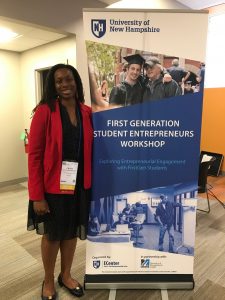
Nnakwe Whitley at a workshop to expose first-generation college students to entrepreneurship, which originated from an NSF initiative she helped design as a AAAS fellow.
I was always interested in how my expertise was relevant to the greater community, and I found that innovation training provides the mindset and the communication skills to find ways to positively impact your community, whether it is academic or business. That’s the aspect of entrepreneurship that draws me—it’s a way to empower people.
Look at leading entrepreneurs; they are trying to change the world by meeting the needs of their customers. Entrepreneurship is the practice of solving a problem by building something new, then commercializing it. In my workshops, I train participants on how to be more flexible and creative with their ideas, to better collaborate with others, and to receive input from different types of people. These are skills you need whether you are building a company or a research project. Training in this space ultimately makes you a better scientist.
What skills have you learned from your different positions that are useful for readers to know about?
There are so many different things! For example, business email etiquette was something I did not know about until I was a consultant after graduate school. When you set up a meeting, you send a calendar invitation, and you send follow up emails. When I returned to working with academics after being a consultant, I ran meetings very differently. I prepared written agendas with planned topics that started with introductions and ended with action items. Agendas make meetings guided discussions with specific direction and endings. I also learned organizational management etiquette and practices. When I came back to academia and sent calendar invitations, many academics gave me the side eye; I had to remind them that these are practices that I learned in order to better communicate and manage my time—and respect their time, as well.
What advice do you have for trainees who are having a difficult time with their career path?
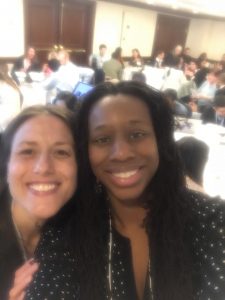
Nnakwe Whitley and Dr. Barbara Natalizo giving the Innovation workshop at the 2018 National Postdoctoral Association’s Annual Conference.
People often think there’s only one perfect job for them, but the reality is that there are many wonderful options for you at any given time. Having to decide what you’re going to do for the rest of your life can feel impossible. Instead, it’s a great asset to have multidimensional mentorship and networking opportunities at professional, technical, and social levels. You may not know everything, but you can seek mentorship and learn from those mentors. When you learn about your options, your career decisions become an informed choice that you make. That way, if you realize that what you’re doing isn’t working for you, you can brainstorm and network your way into another wonderful choice.
Here’s a secret: some scientists may act like they know what they are doing in their careers all the time—they don’t. This is a dysfunctional belief that the culture of science imposes on us. What they don’t tell you is that it is key to seek advice and sponsorship from mentors and your peers to get through the ambiguous parts of your career journey. You will eventually figure it out so be sure to ask for help! I envision my life in five-year chunks and I think about the steps that can get me there. I can only tell you where I want to be in five years; the choices are all pretty amazing, but I always leave room for serendipity to happen.
About the author:
![]() Didem Sarikaya is the Co-Chair of the Early Career Scientist Career Development Committee and an FRSQ Postdoctoral Fellow at the University of California Davis. She is committed to bringing forward stories and tools for trainees to learn more about career options so they can develop personally meaningful career trajectories.
Didem Sarikaya is the Co-Chair of the Early Career Scientist Career Development Committee and an FRSQ Postdoctoral Fellow at the University of California Davis. She is committed to bringing forward stories and tools for trainees to learn more about career options so they can develop personally meaningful career trajectories.
Learn more about the GSA’s Early Career Scientist Leadership Program.


